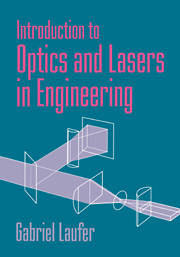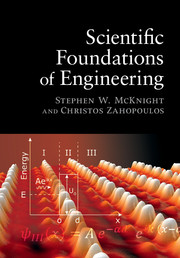Introduction to Optics and Lasers in Engineering
In a very short period of time, lasers have advanced from a mere research interest to an increasingly useful, commercially available tool for material processing, precision measurements, surgery, communication, and entertainment. This book provides the background in theoretical physics necessary to understand the engineering applications of lasers. It summarizes relevant theories of geometrical optics, physical optics, quantum optics, and laser physics while tying them to applications in such areas as fluid mechanics, combustion, surface analysis, material processing, and laser machining. The author clearly and thoroughly explains advanced topics such as laser Doppler velocimetry, laser-induced fluorescence, and holography. The book includes numerous examples and advanced problems that simulate real-world research and encourage independent reading and analysis. The book will benefit researchers and students across all branches of engineering.
- First book that links the physics to engineering applications
- Includes numerous worked examples and homework problems to encourage independent study
- Discusses advanced applications in an easy-to-understand manner
Reviews & endorsements
"This book provides the background in theoretical physics necessary to understand engineering applications of lasers and optics....Discussions of advanced optics such as laser Doppler velocimetry, laser-induced fluorescence, and holography are simplified yet are sufficiently detailed to enable the reader to evaluate existing systems and design new ones." International Aerospace Abstracts
"A unique feature of this text is that almost every chapter ends with research problems, each based on a published journal article that deals specifically with the topic of that chapter but goes beyond the coverage of the book....the book can be a valuable reference..." S. Maleki, Choice
Product details
September 2005Paperback
9780521017626
500 pages
254 × 177 × 26 mm
0.86kg
181 b/w illus. 12 tables
Available
Table of Contents
- 1. Radiometry
- 2. Geometrical optics
- 3. Maxwell's equations
- 4. Properties of electromagnetic waves
- 5. Propagation and applications of polarized light
- 6. Interference effects and their applications
- 7. Diffraction effects and their applications
- 8. Introduction to the principles of quantum mechanics
- 9. Atomic and molecular energy levels
- 10. Radiative transfer between quantum states
- 11. Spectroscopical techniques for thermodynamical measurements
- 12. Optical gain and lasers
- 13. Propagation of laser beams.






